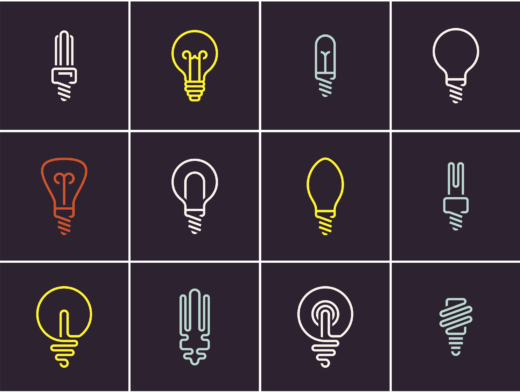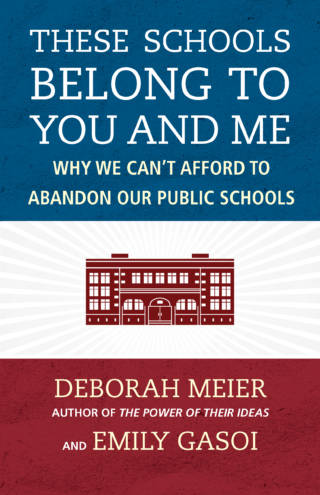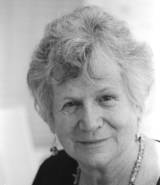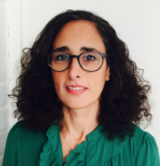Excerpted from "These Schools Belong to You and Me: Why We Can’t Afford to Abandon Our Public Schools" by Deborah Meier and Emily Gasoi (Beacon Press, 2017). Reprinted with Permission from Beacon Press. The following excerpt was written by Meier.
FOSTERING A CULTURE OF TRUST
While few traditional schools encourage enough of the kind of open exchange described in the previous section, the level of student freedom to voice opinions tends to increase in accordance with the student body’s socioeconomic status, with schools that serve a predominantly poor population often severely limiting student expression to canned content. It’s as if we do not trust children from poor communities to develop and express their own ideas. This stance can take a particularly pernicious form when schools enlist the help of modern technology in this ignoble cause, creating surveillance technologies replete with hidden cameras, locker searches, and police patrols roaming the corridors, and relentlessly excluding those who resist. Even though the lion’s share of student-initiated school violence over the past twenty-five years has been carried out in majority-white schools (beginning with the Columbine High School massacre and most recently at Sandy Hook Elementary School), police-state security has only increased in schools that serve more than 50 percent students of color. The National Association of School Psychologists, along with numerous and educators, warns that heightened security measures negatively impact a school’s learning environment and undermine the fundamental relationships between adults and children, making it impossible to nurture the degree of trust and respect that should characterize all schools in a democracy.
Through my experience starting democratically governed schools, I have come to understand the importance of creating systems and structures that support open, honest resistance from all constituents—students, teachers, families, and even administrators, who must be in a position to resist external mandates that threaten the integrity of the school culture. Interestingly, over the years, I have found myself drawn to teachers who have been considered “troublemakers,” many of them had even been fired from their former schools for being such.
But with each school that I helped start—first, the Central Park East and Coalition Schools in New York City, and then, Mission Hill School in Boston—I gained insight into how to better work with staff to establish cultural norms that encourage healthy disagreement and pushback. We set up forums in which members of the school community were invited to air their grievances and share their ideas for improvement; we kept the school community small enough that everyone could come to know and feel known by everyone else; we created formal tools to facilitate a peer-review process that involved teachers and colleagues from sister schools and universities providing one another with critical feedback.




 Deborah Meier, author "
Deborah Meier, author " Emily Gasoi has been an educator for more than two decades and was a founding teacher at Mission Hill School in Boston. Gasoi currently lives in Washington, DC, where she adjuncts at Georgetown University and is co-founder of Artful Education, an organization focused on helping schools and arts organizations improve practices related to creative teaching and learning.
Emily Gasoi has been an educator for more than two decades and was a founding teacher at Mission Hill School in Boston. Gasoi currently lives in Washington, DC, where she adjuncts at Georgetown University and is co-founder of Artful Education, an organization focused on helping schools and arts organizations improve practices related to creative teaching and learning.